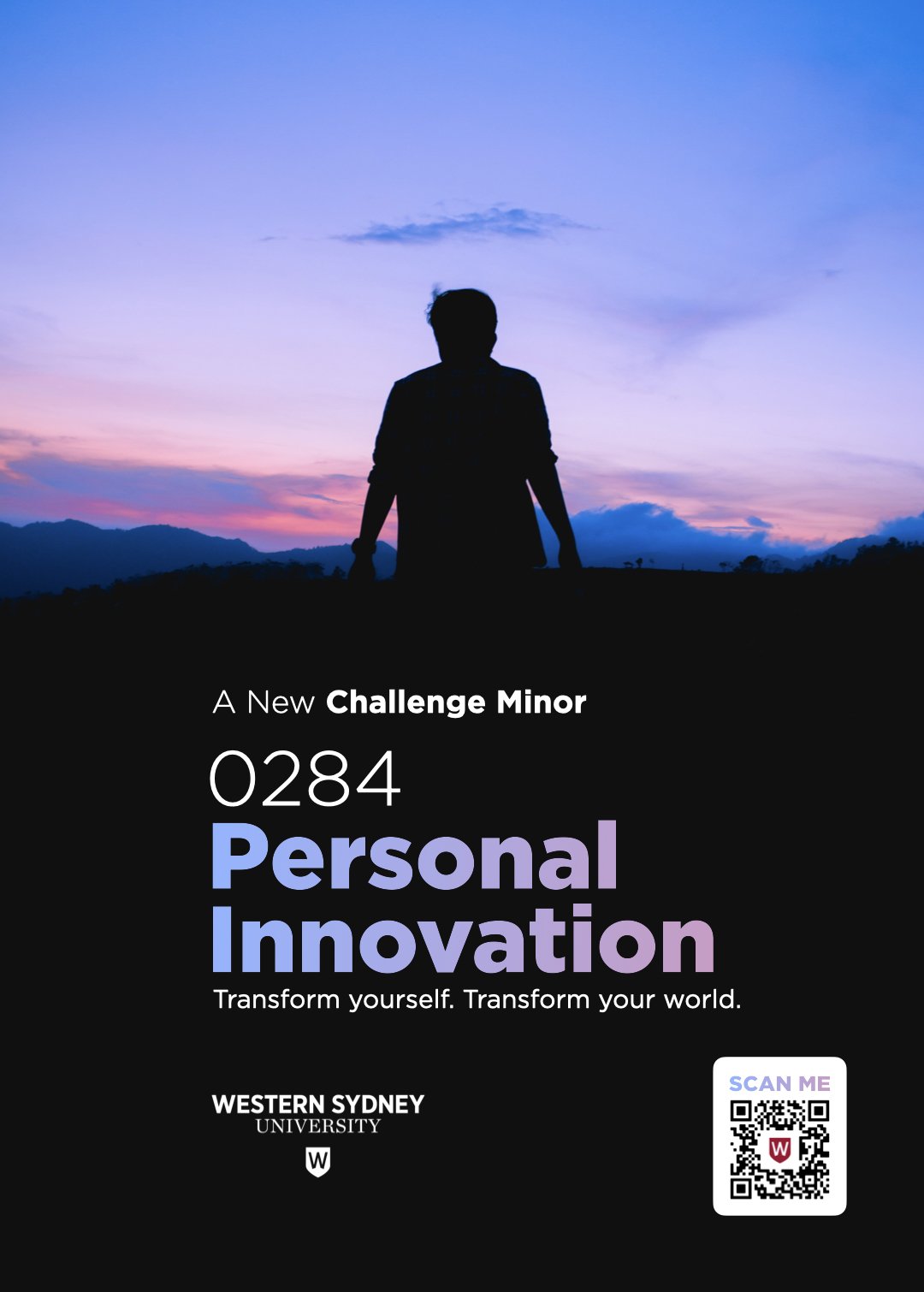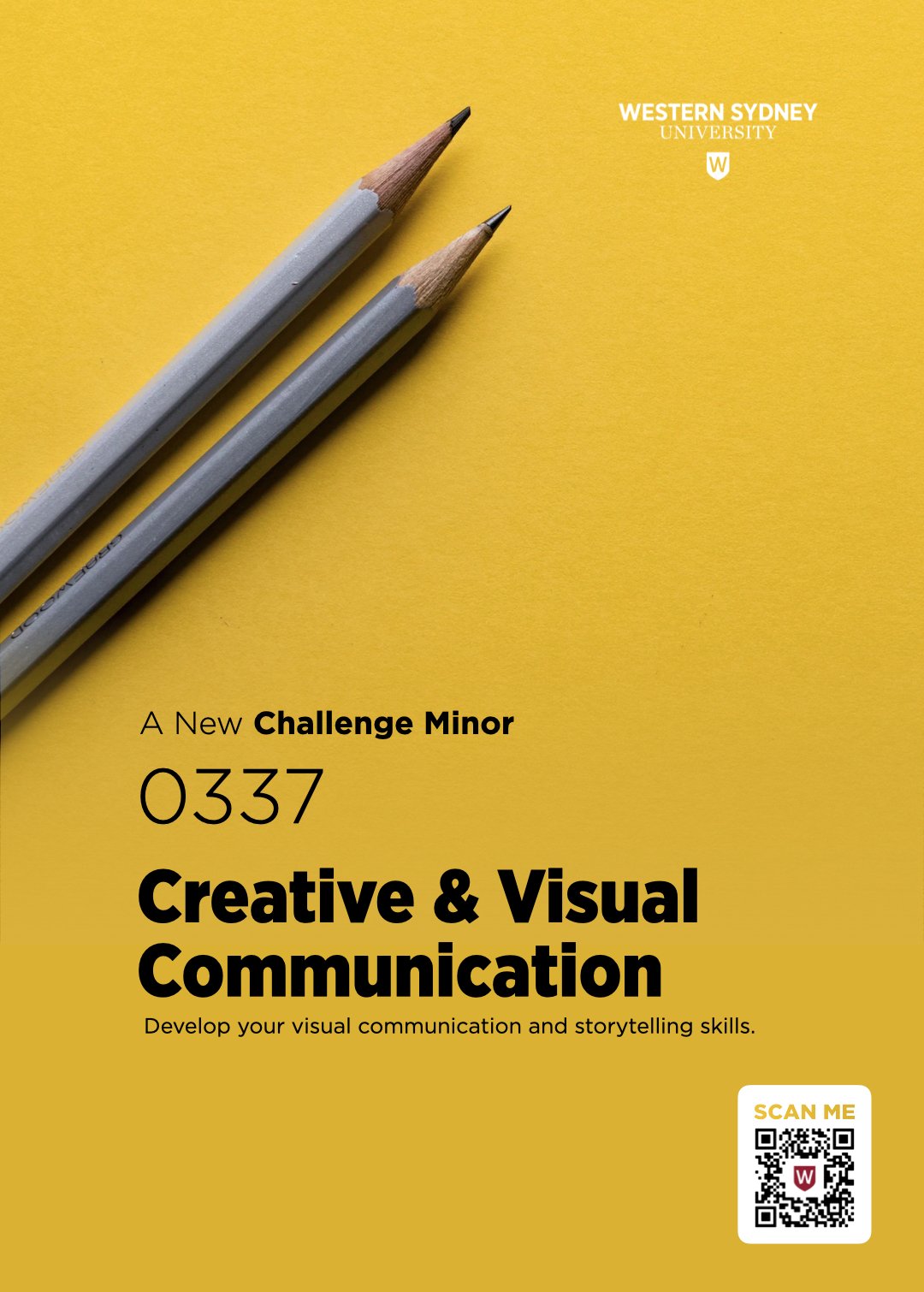

“Domain Knowledge is no longer the primary competitive advantage.
But if you can take that knowledge and use it to solve a problem, you’re indispensable.”
Our Challenge Minors
The Innovative Entrepreneurs curriculum cultivates personal innovation, creativity, problem-solving, ideation, and strategic thinking skills. Students learn to think outside the box, develop innovative solutions, and create strategies to bring their ideas to life.
It prepares them to thrive as entrepreneurs in a rapidly changing world.
Personal
Innovation
Cultivate your personal brand, fundamental employability skills, alongside your capacity to be adaptable in the workplace.
Innovating, Creating & Problem Solving
Apply your entrepreneurial capabilities and skillsets to creative problem solving in a variety of contexts.
Creative & Visual Communication
Experiment with a variety of creative tools and techniques to better interpret, evaluate, use, and create visual media for different purposes.
Ideate. Strategise. Innovate.
Ever thought of monetising your side hustle? Expand your creative entrepreneurial practice and apply it to multiple emerging contexts.

“As students, there’s always this sense of uncertainty around the future of work. We’re always asking ourselves: ‘what comes next after graduation?’ Are we even ready for the workplace?”
Who is an Innovative Entrepreneur?
We need Innovative Entrepreneurs — graduates who are adaptable, self-aware,
and who possess a diverse set of practical skills. They can solve problems, inspire people,
and drive authentic transformation.
Meet the Makers
-

Neil Perry
Neil is a Senior Research Lecturer in Corporate Social Responsibility and Sustainability. He specialises in progressive economics approaches to environmental economics and policy and in ecological economics.
-

Tendai Chikweche
Tendai is an experienced academic and researcher with more than 20 years experience in various disciplines primarily in marketing, entrepreneurship and innovation.
-

Kate Richards
Kate Richards is a Sydney-based media artist, producer and academic. She Leader of the Experiential and Immersive Research Lab WSU, the course co-ordinator for the Master of Creative Industries, SCHA WSU
-

Katrina Sandbach
Katrina is a Senior Lecturer in Design (Visual Communication) in the School of Humanities and Communication Arts.
-

Samuel Suresh
Samuel has completed a Bachelor of Science/Bachelor of Business (Marketing) and continues to work as Co-ordinating Lead of Student Partnership at Western.
-

Sophia Clark
Sophia completed a Bachelor of Business (Marketing) and is now working in the industry in a marketing agency.
-

Brooke Mees
Brooke completed a Masters of Teaching (Primary) and now works as a primary school teacher.
-

Daisy Plzak
Daisy has completed a Bachelor of Medicine and is now pursuing creative opportunities.
-
Lilly-Rose Saliba
Lily-Rose is a Social Science and Law student who is also working as a Law Clerk while studying.

The Innovative Entrepreneurs Story
Some of the WSU Student Partners and staff in the university got together and asked ourselves: “What does it mean to be an Innovative Entrepreneur?”. We had a go at brainstorming what we thought the term meant and the aspects of it relevant to our lives.
We acknowledged the two fundamental skills of being an Innovative Entrepreneur that any student, from any discipline, could benefit from were:
The ability to Lead
The ability to Solve Problems.
It was these two skills, and the skillsets associated with them, that formed the foundation for the IE Curriculum Challenge Minors.
But first, we needed to test whether our ideas were relevant to what employers were looking for.
The Ability to Lead.
“If the only thing you can do is follow a set of instructions, we can always find someone else who can do the same job as you faster and cheaper.”
The ability to lead is one of the most important skills a graduate can develop regardless of their career path. We often mistake being a “leader” for being a CEO or manager. But in reality, the skill of being self-aware, creating connection, working with others, being adaptable, and driving change are not limited to the field of business. A teacher, scientist, business person or even someone running a cafe, can all benefit from these skills.
The Ability to Solve Problems.
“Domain Knowledge is NO longer the primary competitive advantage.”
But, if you’re someone who can take that knowledge from your degree and creatively apply it to solve a problem, you instantly stand out from the rest. Being a problem solver who thinks creatively, embraces risk-taking, and possesses a multidisciplinary skillset, allows you to become the kind of graduate who is ready to face the challenges of the world.








